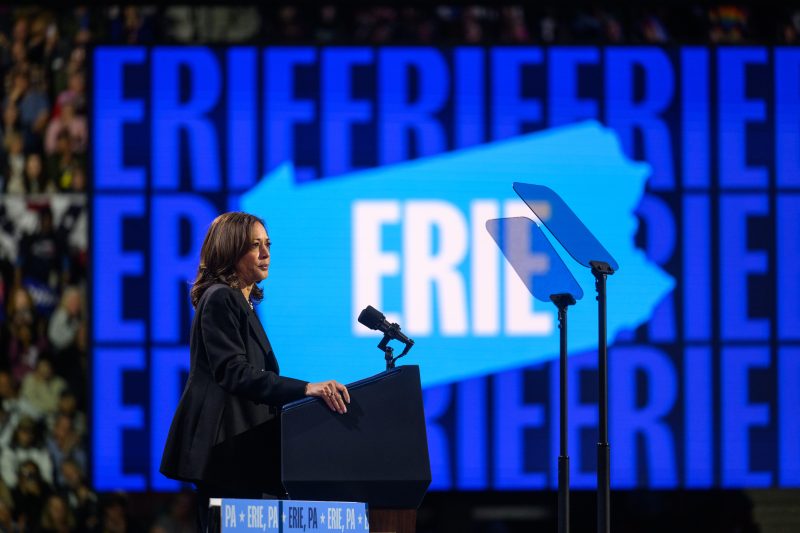In a recent political event in Pennsylvania, tensions ran high as Senator Kamala Harris and President Donald Trump engaged in an escalating war of words. The two political heavyweights launched scathing attacks against each other, with Harris characterizing Trump as “unhinged while the President fired back with harsh criticisms of the Senator. The verbal duel between Harris and Trump illustrates the intense and polarized political climate that currently grips the United States.
Senator Harris, known for her direct and assertive style, did not hold back in her critique of Trump. She condemned the President’s actions and leadership style as erratic and unpredictable, labeling him as “unhinged” and implying that he is unfit for the presidency. Harris’ choice of words not only aims to undermine Trump’s credibility but also to highlight what she perceives as his lack of stability and competence in handling the country’s affairs.
On the other side, Trump wasted no time in hitting back at Harris, launching personal attacks and questioning her qualifications and record. The President has a history of employing incendiary language and aggressive tactics when engaging with political opponents, and his response to Harris is consistent with this approach. By going on the offensive, Trump seeks to diminish Harris’ credibility and deflect attention from any valid criticisms she may have raised.
The exchange between Harris and Trump reflects the broader trend of political discourse in the United States becoming increasingly combative and polarized. With both sides resorting to personal attacks and inflammatory rhetoric, the focus shifts away from substantive policy issues and towards a battle of personalities and egos. Such a contentious and divisive political environment makes it challenging to have constructive dialogue and find common ground on important matters facing the nation.
The clash between Harris and Trump also underscores the deep ideological divisions that exist within American society. The stark differences in their worldviews and approaches to governance represent the broader ideological chasm that separates many citizens and fuels political polarization. This ideological polarization not only hampers cooperation and consensus-building but also contributes to a sense of societal fragmentation and discord.
As Harris and Trump continue to trade barbs and criticize each other on the campaign trail, it is crucial for voters to critically assess their messages and motivations. Rather than getting caught up in the spectacle of personal attacks and mudslinging, citizens should focus on evaluating candidates based on their policies, track records, and ability to address the pressing challenges facing the nation. By engaging in thoughtful and informed decision-making, voters can play a crucial role in shaping the future direction of the country and holding elected officials accountable for their actions.
In conclusion, the verbal sparring between Senator Kamala Harris and President Donald Trump in Pennsylvania exemplifies the intense and polarized state of American politics. As the two political heavyweights exchange attacks and criticisms, it is essential for citizens to look beyond the rhetoric and assess candidates based on their merits and ability to lead. By rising above the fray of personal attacks and focusing on substantive issues, voters can contribute to a more constructive and inclusive political discourse that fosters cooperation and progress.

